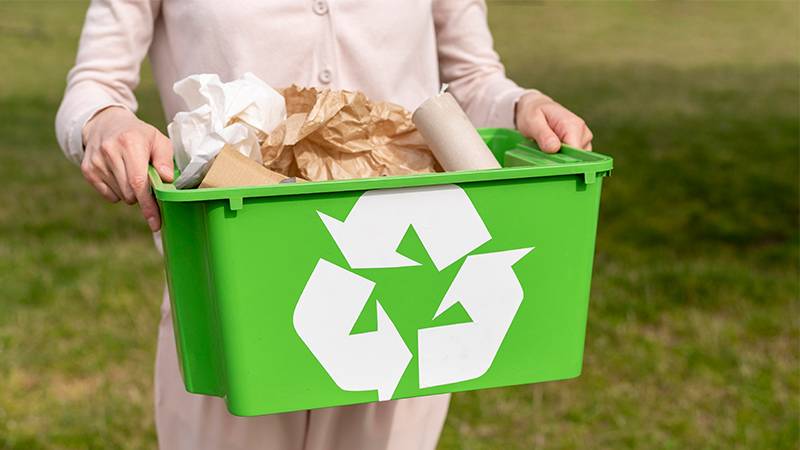At the Boulder County Recycling Center in Colorado, the future of recycling operates with speed and precision. Sorty McSortface and Sir Sorts-a-Lot, two AI-driven robots, meticulously sort through mounds of trash, picking out recyclable items while eliminating contaminants. Resembling powerful mechanical arms of arcade claw machines, these robots are a creation of the tech start-up, Amp Robotics.
The wave of Artificial Intelligence (AI) is sweeping through various sectors, and recycling is no exception. Amp Robotics has successfully placed its innovative tech in nearly 80 facilities across the U.S. With similar advancements from companies like Bulk Handling Systems and MachineX, AI-powered sorting robots are fast becoming essential to recycling plants, significantly enhancing their efficiency.
Despite the overwhelming buzz around AI in recent years, its impact on the recycling industry is palpable yet understated. With the ongoing challenges faced by recycling centers, AI provides a much-needed technological boost.
Materials recovery facilities (MRFs) have always intended to bridge the gap between consumption and production. They collect, sort, and then sell reusable materials. However, there’s a significant problem – the current systems are not efficient. In 2018, a mere third of all glass containers were recycled in the U.S. The same year witnessed an even lower percentage for plastics, with less than 9% being recycled. The challenge becomes even more pronounced with China’s decision to stop purchasing America’s recyclable scrap due to its mixed nature. This shift has led to an increase in burning and landfilling recyclables that were previously sent to China.
Traditional recycling methods, which include sieves, compressed air, and powerful magnets, often miss the fine details, especially with plastics. The inability to accurately differentiate between similar items poses a significant challenge.
Enter AI-powered recycling robots. These machines, developed by companies like Amp Robotics, MachineX, and Glacier Robotics, are equipped with “vision systems.” By analyzing vast amounts of images of discarded items, they can identify subtle differences in items based on color, shape, texture, or even logos. Amp’s bots can even identify the unique SKU of an item.
AI stands to change that calculus, giving recycling plants a far more granular view into packaging that otherwise tends to be hopelessly commingled. These recycling bots—from Amp and competitors such as MachineX, Bulk Handling Systems, Glacier Robotics, and Everest Labs—are “vision systems”: In the same way that ChatGPT is trained by ingesting text that has been published online, they absorb lots of photographs of tossed-out items in various states of degradation and disrepair.
The accuracy and granularity these robots provide are commendable. While recycling operators credit the systems with an accuracy rate of 85 to 95%, robotics companies claim up to 99%.
Despite their potential, the financial implications of these bots are considerable, according to The Atlantic. A single robot can carry a price tag as high as $300,000, with ROI taking years. However, the interest in these AI solutions is evident. Waste Management, America’s largest residential recycling company, plans to invest $800 million by 2025 in AI-powered infrastructure. Simultaneously, tech firms like Amp are attracting significant investments from giants like Google Ventures and Sequoia Capital.
However, it’s crucial to understand that AI, while transformative, hasn’t fully rectified the recycling situation. AI offers promise for the future, especially in high-volume optical sorting. Rumpke, in collaboration with MachineX, is developing a facility in Columbus, Ohio, aiming to process a ton of material every minute.
While the recycling industry’s future seems AI-driven, challenges persist. True sustainability requires a shift from the rampant production of single-use products. While states are starting to hold packaging producers financially accountable, there is still much to do. Technological advancements may sometimes offer companies an avenue for greenwashing, misleading consumers about their eco-friendliness.
Nevertheless, the AI surge in recycling shows promise. But it also highlights an uncomfortable truth: while tech can enhance processes, it cannot single-handedly solve the problem of rampant consumerism and waste. The challenge remains multidimensional, requiring both technological and behavioral shifts.
More inspiring green news similar to this:


